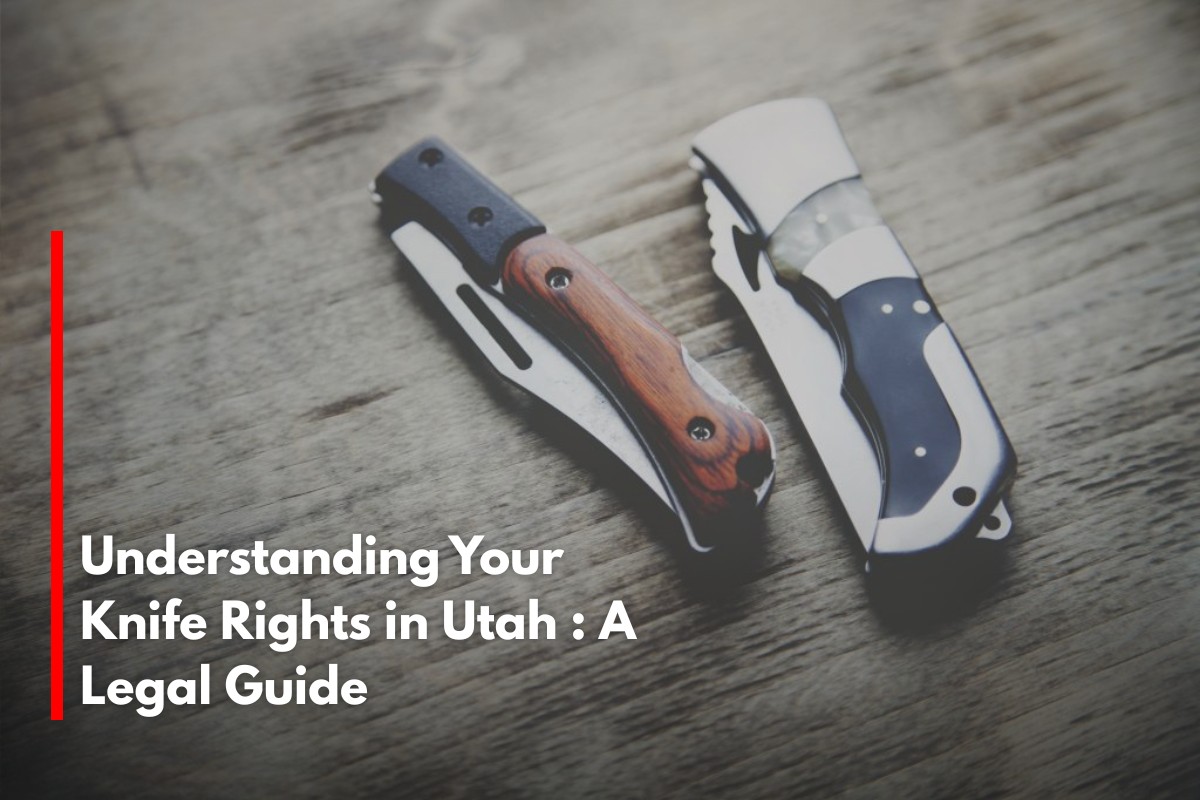Utah is known for its relatively permissive knife laws compared to many other states. Whether for everyday use, outdoor activities, or self-defense, understanding the legal framework around knives in Utah is essential to ensure compliance and avoid unintended legal issues. This guide breaks down the key aspects of knife rights in Utah as of 2025.
Knife Ownership and Types Allowed
In Utah, it is legal to own and carry almost any type of knife, including folding knives, fixed blades, switchblades, daggers, and even large blades like machetes and swords. There are no specific prohibitions on knife types under state law, meaning individuals are free to possess virtually any knife they choose.
However, this freedom does not extend to the misuse of knives. Knives used with criminal intent, or in the commission of crimes, can still lead to legal consequences.
Carrying Knives: Open and Concealed
Utah permits both open carry and concealed carry of knives without restrictions on blade length or type. Individuals do not require a license or permit to carry knives, whether openly displayed or hidden.
That said, carrying a knife with the intent to use it unlawfully against another person is prohibited and can result in criminal charges.
Restrictions and Considerations
There are few explicit restrictions, but some key points to note include:
Restricted Persons: Certain groups, such as felons or those adjudicated mentally incompetent, may be prohibited from possessing knives under dangerous weapon laws.
Locations: Knives may be restricted on federal properties, schools, courthouses, or other specific institutions where weapons are barred.
Intent Matters: Carrying a knife responsibly for lawful purposes like work, recreation, or self-defense is legal. Using or carrying a knife with criminal intent is illegal.
Age Restrictions
While Utah law does not explicitly prohibit minors from possessing knives, it is generally considered prudent for minors to carry knives only under adult supervision or for legitimate activities like camping or fishing.
Knife Laws and Self-Defense
Knives can be carried for lawful self-defense under Utah law. However, self-defense laws require that force used is reasonable and necessary. Unprovoked use of knives can lead to serious charges.
Legal Protections and Potential Consequences
Utah’s lenient knife ownership and carry laws provide significant protections for lawful knife users. However, misuse, such as brandishing a knife in an intimidating manner or using it in a crime, may result in misdemeanor or felony charges depending on the context and severity.
Summary of Utah Knife Rights
Ownership and carrying of most knives are legal without permit
No blade length or knife type restrictions at the state level
Intent and context of knife use affect legality
Carrying knives in prohibited locations can lead to legal issues
Certain persons are barred from possessing knives under dangerous weapon laws
Utah offers a flexible and permissive legal environment for knives, empowering citizens to carry a wide range of blades legally for various uses. Awareness of responsible carrying, respecting restricted zones, and avoiding criminal misuse is essential for abiding by the law and safeguarding individual rights. This legal guide helps residents and visitors understand their knife rights clearly and confidently in Utah.
Sources
(https://www.akti.org/state-knife-laws/utah/)
(https://nobliecustomknives.com/us-knife-laws/utah-knife-laws/)
(https://www.egclegal.com/utah-knife-laws-a-detailed-exploration/)
(https://utahcarrylaws.com/laws/utah/knives/)
(https://crateclub.com/blogs/loadout/what-self-defense-weapons-are-legal-in-utah)











